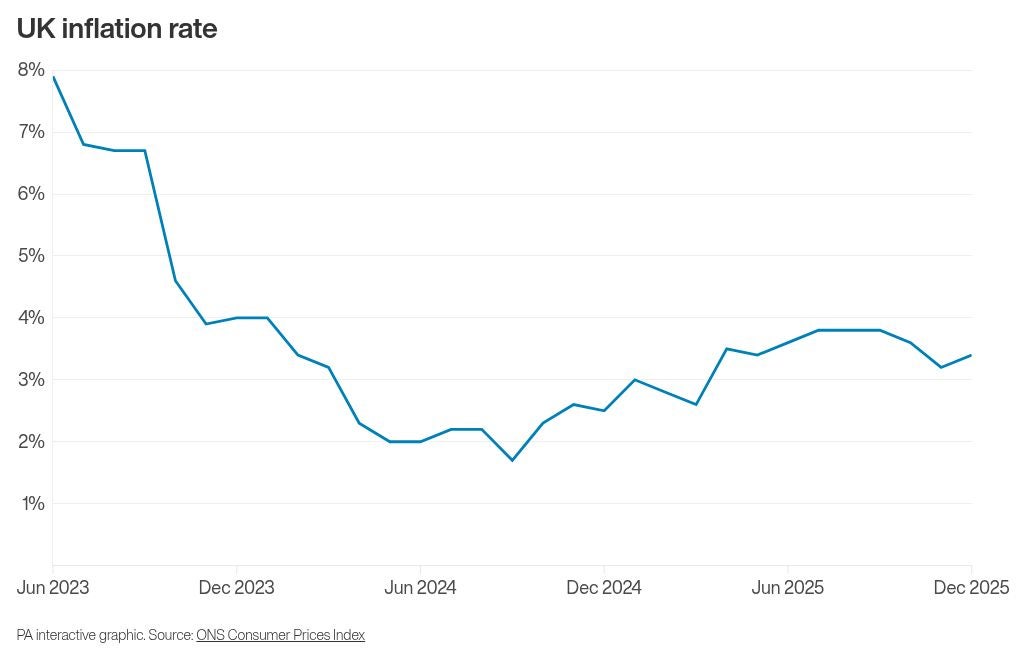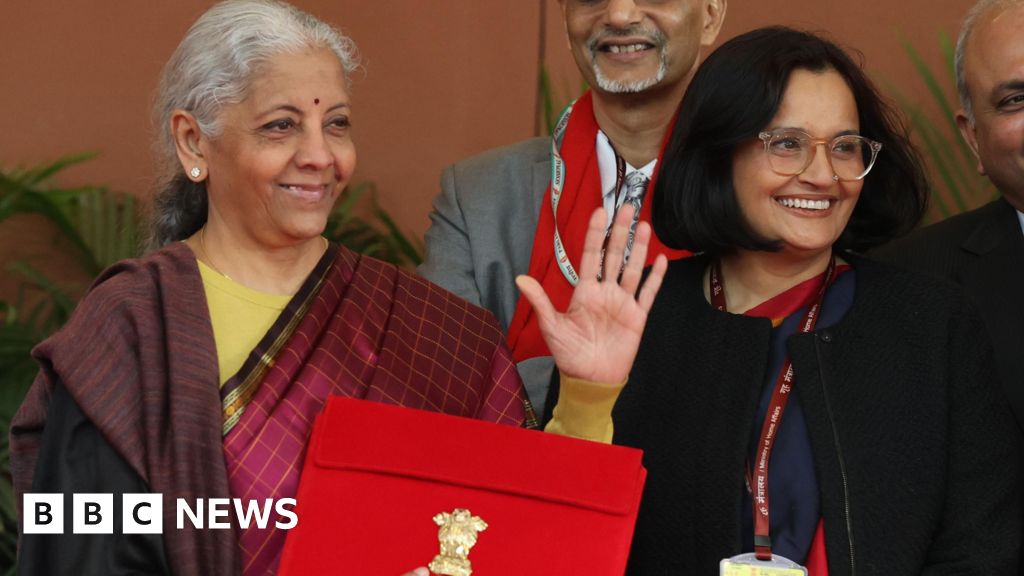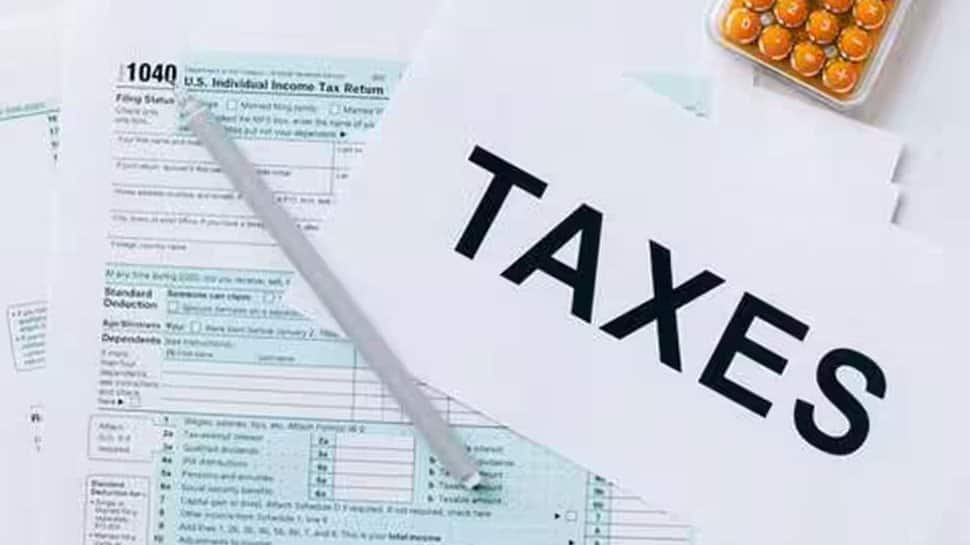Business
30 staff sacked at Grand Theft Auto developer in alleged ‘union-busting’ move

A union has claimed more than 30 UK staff of Rockstar Games – the developers of Grand Theft Auto – have been sacked in a “union-busting” move by bosses.
The Independent Workers’ Union of Great Britain (IWGB) has said it appears that staff at the company’s base in Edinburgh had been sacked for “trade union activity” and claimed that the dismissals were “unlawful and retaliatory”.
The union said that all of the workers affected had been members of the union and of a chat group on the Discord app.
Grand Theft Auto (GTA), created by Rockstar Games which is a subsidiary of Take Two Interactive, has been the most profitable videogame franchise in the world with GTA 5 having generated more than 8.0 billion US dollars (£6 billion) in revenue since 2013.
Take Two Interactive has said the workers were dismissed for “gross misconduct”.
The IWGB said in a statement: “Over 30 members of UK staff at Rockstar Games, developers of the Grand Theft Auto series, were fired on Thursday October 30 due to trade union activity.
“The staff, who were all part of a private trade union Discord channel and members of the Independent Workers’ Union of Great Britain, were dismissed in what the union argues constitutes unlawful and retaliatory dismissals.
“Organisers at the IWGB have reported that amongst the staff dismissed were those with visas sponsored by Rockstar and those with medical conditions who will lose access to essential workplace healthcare schemes.
“The IWGB, which sees this as a brazen act of illegal union busting, says it will be mounting a full and robust defence of its members who it believes have been targeted unfairly for exercising their legal rights.”
Alex Marshall, IWGB president, said: “Rockstar has just carried out the most blatant and ruthless act of union busting in the history of the games industry. This flagrant contempt for the law and for the lives of the workers who bring in their billions is an insult to their fans and the global industry.
“Despite this calculated attack on workers organising for a collective voice and to improve their difficult working conditions, the Rockstar union remains undeterred.
“They will keep organising for respect and better conditions whilst continuing to pour their blood, sweat and creativity into games that are loved by millions.
“The IWGB will pursue every legal claim possible to ensure our members are reinstated and receive interim relief.”
Spring McParlin-Jones, chair of the IWGB Game Workers Union, said: “Next year, Grand Theft Auto VI is expected to make upwards of 10 billion dollars (£7.6 billion).
“That’s enough to end world hunger for a year. Such a flagrant attack on workers’ rights from such a valuable studio sends a very clear and shocking message to the world, that money matters more than people.”
Alan Lewis, head of global corporate communications at Take Two Interactive, said: “We strive to make the world’s best entertainment properties by giving our best-in-class creative teams positive work environments and ongoing career opportunities.
“Our culture is focused on teamwork, excellence, and kindness. Rockstar Games terminated a small number of individuals for gross misconduct, and for no other reason. As always, we fully support Rockstar’s ambitions and approach.”
Business
How inflation rebound is set to affect UK interest rates

Interest rates are widely expected to remain at 3.75% as Bank of England policymakers prioritise curbing above-target inflation while also monitoring economic growth, according to expert analysis.
The Bank’s Monetary Policy Committee (MPC) is anticipated to leave borrowing costs unchanged when it announces its latest decision on Thursday, marking its first interest rate setting meeting of the year.
This follows a rate cut delivered before Christmas, which was the fourth such reduction.
At the time, Governor Andrew Bailey noted that the UK had “passed the recent peak in inflation and it has continued to fall”, enabling the MPC to ease borrowing costs. However, he cautioned that any further cuts would be a “closer call”.
Since that decision, official data has revealed that inflation unexpectedly rebounded in December, rising for the first time in five months.
The Consumer Prices Index (CPI) inflation rate reached 3.4% for the month, an increase from 3.2% in November, with factors such as tobacco duties and airfares contributing to the upward pressure on prices.
Economists suggest this inflation uptick is likely to reinforce the MPC’s inclination to keep rates steady this month.
Philip Shaw, an analyst for Investec, stated: “The principal reason to hold off from easing again is that at 3.4% in December, inflation remains well above the 2% target.”
He added: “But with the stance of policy less restrictive than previously, there are greater risks that further easing is unwarranted.”
Shaw also highlighted other data points the MPC would consider, including gross domestic product (GDP), which saw a return to growth of 0.3% in November – a potentially encouraging sign for policymakers.
Matt Swannell, chief economic advisor to the EY ITEM Club, affirmed: “Keeping bank rate unchanged at 3.75% at next week’s meeting looks a near-certainty.”

He noted that while some MPC members who favoured a cut in December still have concerns about persistent wage growth and inflation, recent data has not been compelling enough to prompt back-to-back reductions.
Edward Allenby, senior economic advisor at Oxford Economics, forecasts the next rate cut to occur in April.
He explained: “The MPC will continue to face a delicate balancing act between supporting growth and preventing inflation from becoming entrenched, with forthcoming data on pay settlements likely to play a decisive role in shaping the next policy move.”
The Bank’s policymakers have consistently voiced concerns regarding the pace of wage increases in the UK, which can fuel overall inflation.
Business
Budget 2026: India pushes local industry as global tensions rise

India’s budget focuses on infrastructure and defence spending and tax breaks for data-centre investments.
Source link
Business
New Income Tax Act 2025 to come into effect from April 1, key reliefs announced in Budget 2026

New Delhi: Finance Minister Nirmala Sitharaman on Sunday said that the Income Tax Act 2025 will come into effect from April 1, 2026, and the I-T forms have been redesigned such that ordinary citizens can comply without difficulty for ease of living.
The new measures include exemption on insurance interest awards, nil deduction certificates for small taxpayers, and extension of the ITR filing deadline for non-audit cases to August 31.
Individuals with ITR 1 and ITR 2 will continue to file I-T returns till July 31.
“In July 2024, I announced a comprehensive review of the Income Tax Act 1961. This was completed in record time, and the Income Tax Act 2025 will come into effect from April 1, 2026. The forms have been redesigned such that ordinary citizens can comply without difficulty, for) ease of living,” she said while presenting the Budget 2026-27
In a move that directly eases cash-flow pressure on individuals making overseas payments, the Union Budget announced lower tax collection at source across key categories.
“I propose to reduce the TCS rate on the sale of overseas tour programme packages from the current 5 per cent and 20 per cent to 2 per cent without any stipulation of amount. I propose to reduce the TCS rate for pursuing education and for medical purposes from 5 per cent to 2 per cent,” said Sitharaman.
She clarified withholding on services, adding that “supply of manpower services is proposed to be specifically brought within the ambit of payment contractors for the purpose of TDS to avoid ambiguity”.
“Thus, TDS on these services will be at the rate of either 1 per cent or 2 per cent only,” she mentioned during her Budget speech.
The Budget also proposes a tax holiday for foreign cloud companies using data centres in India till 2047.
-

 Sports5 days ago
Sports5 days agoPSL 11: Local players’ category renewals unveiled ahead of auction
-

 Tech1 week ago
Tech1 week agoStrap One of Our Favorite Action Cameras to Your Helmet or a Floaty
-

 Sports1 week ago
Sports1 week agoWanted Olympian-turned-fugitive Ryan Wedding in custody, sources say
-

 Entertainment1 week ago
Entertainment1 week agoThree dead after suicide blast targets peace committee leader’s home in DI Khan
-

 Tech1 week ago
Tech1 week agoThis Mega Snowstorm Will Be a Test for the US Supply Chain
-

 Sports1 week ago
Sports1 week agoStorylines shaping the 2025-26 men’s college basketball season
-

 Fashion1 week ago
Fashion1 week agoSpain’s apparel imports up 7.10% in Jan-Oct as sourcing realigns
-

 Entertainment1 week ago
Entertainment1 week agoUFC Head Dana White credits Trump for putting UFC ‘on the map’






